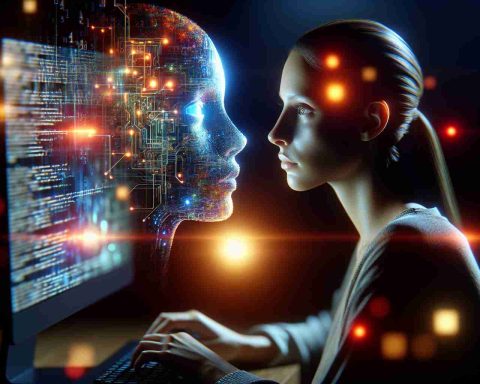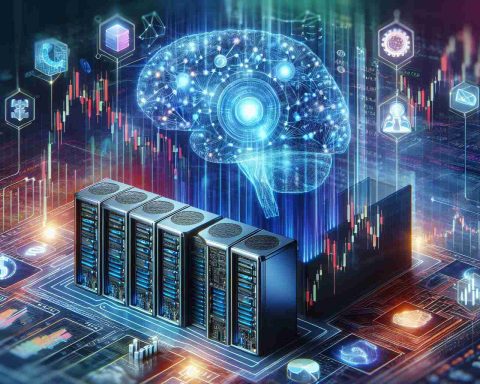Artificial Intelligence (AI) is not just about advanced chatbots or graphic generators anymore. AI has the potential to significantly aid scientists in developing modern diagnostic methods, ultimately saving numerous lives.
In recent years, there has been a rapid development of AI-related technologies. The progress is evident when comparing the capabilities of AI engines like Sorę from OpenAI to those seen just a year ago, such as the quirky spaghetti-eating Will Smith deepfake by Stable Diffusion.
Similarly, the evolution of AI can be witnessed in platforms like ChatGPT, with the recently unveiled version 4o showcasing the ability to grasp humor and irony based on the intonation of the interlocutor’s voice, marking a substantial advancement from its previous iterations.
Apart from commercial applications, the functionality of AI extends far beyond. Particularly, its potential in analyzing, evaluating, and comparing patterns surpasses human capabilities. Researchers are currently training models for early detection of health symptoms, paving the way for innovative diagnostic techniques in modern medicine.
Empowering Medicine Through AI
The integration of AI in healthcare piqued interest when a machine learning model was utilized to analyze tongue images for diabetic patients. This modern approach, spearheaded by engineers from Middle Technical University (MTU) in Baghdad and the University of South Australia, demonstrated a 94% accuracy rate in diagnosing cases based on a dataset comparison.
While the concept of AI analyzing tongue images may seem novel, its application in medicine holds promise for alleviating diagnostic burdens on healthcare practitioners, potentially addressing staffing shortages and relieving hospital strain. Moreover, AI implementation could lead to substantial cost reductions in certain diagnostic procedures, highlighting the pivotal role of imaging in medical decision-making across various specialties.
Recent advancements, like the study published in Brain Communications by the Mayo Clinic Neurology AI Program, underscore how AI expedites data analysis from EEG scans, aiding in the identification of subtle differences related to potential causes of dementia. With data from over 11,000 patients, machine learning techniques were employed to simplify intricate brain wave patterns, enhancing early detection capabilities for cognitive impairments, such as Alzheimer’s disease.
In conclusion, the future of healthcare embraces AI as a vital tool for healthcare professionals to enhance clinical decision-making across all medical disciplines.
Revolutionizing Healthcare: AI’s Unforeseen Impacts
As the realm of Artificial Intelligence (AI) continues to unfold, its integration in healthcare is reshaping diagnostic protocols and enhancing patient care. Beyond the mainstream narratives, there are crucial aspects and questions regarding the utilization of AI in diagnosing medical conditions that deserve exploration.
Key Questions and Answers:
1. What ethical considerations arise with AI diagnostic tools?
– Ethical dilemmas can arise concerning patient privacy, data security, and biases embedded in AI algorithms. Striking a balance between technological advancements and ethical standards remains imperative.
2. How does AI impact the role of healthcare professionals?
– AI augments healthcare practitioners by providing prompt diagnostic insights and reducing human error. However, concerns regarding the automation of certain medical tasks and workforce displacement linger.
Challenges and Controversies:
1. Data Privacy and Security: Safeguarding patient data used in AI algorithms from breaches and unauthorized access poses a persistent challenge, necessitating stringent regulatory frameworks.
2. Algorithm Bias: The potential for biases in AI algorithms, stemming from skewed training data, can lead to inaccurate diagnoses, especially in underserved populations or marginalized groups.
Advantages and Disadvantages:
Advantages:
– Rapid Diagnostic Speed: AI algorithms can analyze vast datasets swiftly, expediting the diagnosis of complex medical conditions and facilitating timely interventions.
– Enhanced Accuracy: The precision of AI in detecting subtle patterns and variations in medical imaging surpasses human capabilities, fostering early disease detection and personalized treatment strategies.
Disadvantages:
– Overreliance on Technology: Excessive dependency on AI systems may diminish critical thinking skills among healthcare providers and undermine the holistic approach to patient care.
– Financial Implications: While AI-driven diagnostics can streamline healthcare processes, the initial investment costs, maintenance expenses, and potential need for retraining staff present financial challenges to healthcare institutions.
In navigating the complexities of AI in diagnosing medical conditions, it is essential to remain cognizant of both the transformative potential and the nuanced issues that accompany its implementation. Embracing an interdisciplinary approach that harmonizes technological advancements with ethical considerations is pivotal in optimizing the benefits of AI in revolutionizing healthcare.
For more insights on AI in healthcare, visit HealthIT.gov for comprehensive resources and updates in the domain.

















